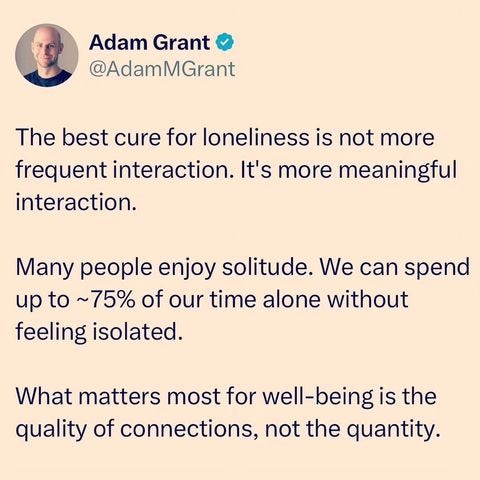Child Abuse and Mental Health Survivors Information - Issue #131
Never forget how hard it is to learn about abuse and trauma, but listen anyway.

I saw this article earlier this week and bookmarked it because it was such a perfect example of something that is played out across the world when it comes to childhood abuse.
It concerns a recent Netflix documentary about the Outreau case in France. I’ve heard about this case over the years but only picked up some details. (Sadly, American media is not great about covering news outside the US.)
The details I knew were disturbing; apparently, learning more has been overwhelming for many.
Thank you for reading the Child Abuse and Mental Health Survivors newsletter. Each week, I share new blog posts and other resources that aim to help survivors of childhood abuse and those who are struggling with mental health issues feel less alone as we discuss the issues surrounding our issues.
For more information about me and why this newsletter exists, visit the website - Child Abuse Survivor.
Reading some of the quotes in that article reminded me of a simple truth. Stories of abuse are disturbing. They make us uneasy and angry. We don’t like being uneasy and angry. So, we turn it off. We stop listening; we shy away from the story
That’s OK when it’s a show on Netflix. It won’t matter to the victims that you turn off the TV and don’t finish the series. If it’s too much for you, that is a form of self-care.
However, when someone you know tells you their story, it may be necessary to accept that sick and angry feeling. It might feel normal to avoid that feeling, but avoiding that feeling means dismissing a survivor’s trauma.
Unfortunately, too many survivors have had to live through the abuse and then the dismissal from people who couldn’t be uncomfortable with the truth.
New from the Blogs
The Benefits of Positive Childhood Experiences (PCEs)
What do we have to offer those kids beyond a message about how their already-high ACE score likely means they have a lifetime of poor outcomes to look forward to? It turns out we have a lot to offer them. By creating positive experiences, we can start to undo the damage and create a preventative buffer to help avoid further adverse events.
Reviews Elsewhere - Hold on to Your Kids: Why Parents I'll to Matter MoI'vehan Peers
I'll repeat what I've said many times. Kids are often vulnerable because they have no close adults to trust and lean on for support. No one is there modeling what a mature sense of self is, so they aren't learning it. I don't necessarily agree with everything Drs. Maté and Neufeld said in this interview that I'm sure I wouldn't agree with everything in their book, but on this point, I agree. Kids need trusted adults who make them feel safe and loved.
Shared from Elsewhere
This is an important discussion because it is happening everywhere - 2 friends in Alaska discuss losing so many people to suicide
Reading different opinions from kids who find social media good for their mental health is fascinating. - Thousands Of Young People Told Us Why The Kids Online Safety Act Will Be Harmful To Minors
Yes! - Self Care Really IS for Everyone
Invisible Scars: World’s Largest Childhood Trauma Study Uncovers Brain Rewiring
The University of Essex study – led by the Department of Psychology’s Dr Megan Klabunde – uncovered a disruption in neural networks involved in self-focus and problem-solving.
We have discussed third places before, but it never hurts to read more about the concept - Why Third Places Are Essential to Creating Community in Modern Society
From the Archives
What's So Toxic About Positivity Anyway?
This is really my biggest problem. Sometimes, sadness, grief, anger, and uncertainty are entirely appropriate, so why are we telling people to ignore those emotions?
Link - Reasons Family Members Side with Sexual Abusers
This same explanation can be used to explain why some people don’t want to pay attention to news stories about abuse or are offended when people talk about “such a sad topic.” They don’t want it to be something they must deal with; they want to go on thinking it doesn’t affect them.
ACE Awareness – Good, Bad, Both?
Those numbers got the headlines. That’s actually fair. The numbers are shocking. But, as much as those numbers got attention, there have also been a few articles that critique the entire subject of ACEs.
So, who's correct? I decided the best way to get an answer for myself was to look at the actual numbers from the original study.
Thanks for reading. If you find this newsletter informative and heThat'sto you, spread the word. That’s the best way to say thank you for the effort I put in each week.



Thank you for this. It's so important.